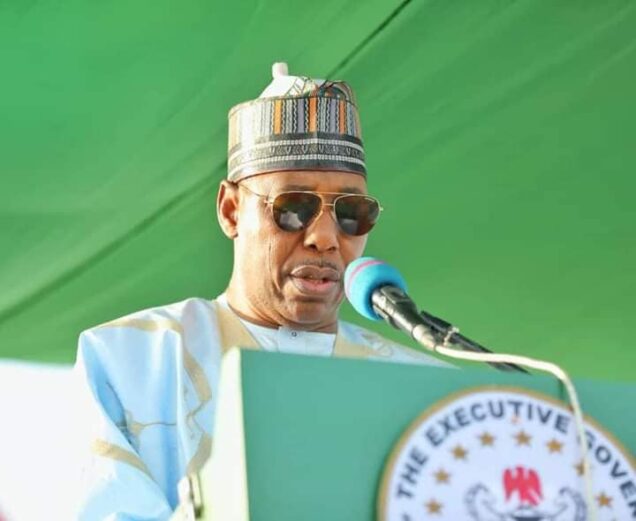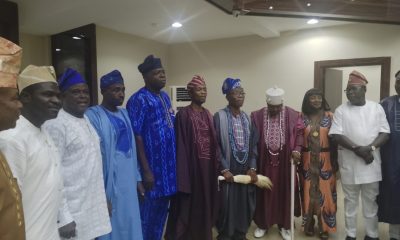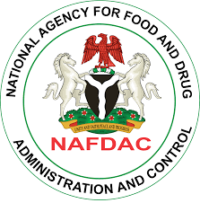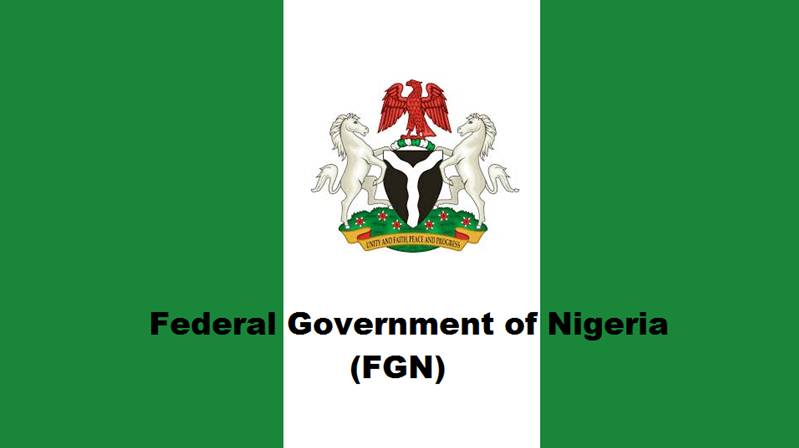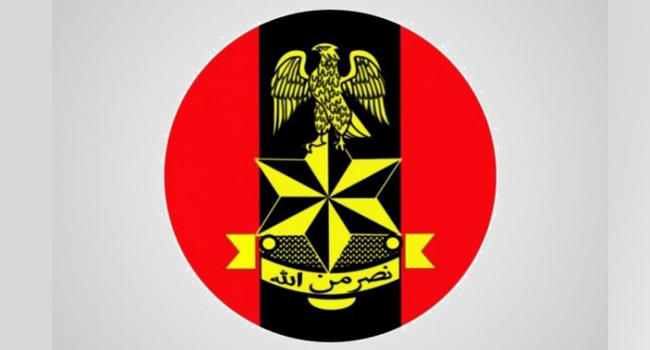Headlines
Why organ trafficking is so common in Nigeria

Medical doctors have given reasons black market or underground/illegal dealings in organ donation, harvesting and transplantation thrive in Nigeria. They identified lack of regulation and enforcement of medical ethics, poverty, inequality and unconscionable medical practitioners as facilitators.
To address the situation, the experts seek establishment of central coordination of organ transplantation similar to the Nigerian Centre for Disease Control (NCDC), as well as direct investment, funding and legal framework for transplantation in Nigeria.
A consultant psychiatrist and former Chief Medical Director of Lagos State University Teaching Hospital (LASUTH) and Permanent Secretary, Lagos State Ministry of Health (LSMH), Prof Femi Olugbile, told The Guardian that there are no properly codified Nigerian laws on organ transplantation; though he added that there is a vague mention of it in the 2015 National Health Act.
Olugbile said the generally observed rules and regulations relate to United Kingdom (UK) and the Western world, who require the donor to be preferably a blood relation, but if there is evidence of no suitable close kin, a volunteer may be sought.
He said the problem with UK is that the volunteer must show reason why he wants to donate an organ to a particular person instead of donating to the pool because there are over 6,000 persons with chronic renal failure awaiting such voluntary donations from living or recently deceased donors in the UK. As such, Olugbile said there must be no cash or other incentive for such donation.
According to him, Western regulations are nominally adopted and loosely enforced in Nigeria and other Third World countries such as India, Pakistan, Bangladesh or Turkey. While they enforce the voluntary requirement ethically, the ‘kinship’ requirement is often cleverly circumvented.
“And they have no way of enforcing the no financial incentive requirement. Everybody needing an organ transplant would normally have the rules explained to them as detailed above and would be expected to comply. Anybody seeking or facilitating organ transplant in a foreign country must familiarise themselves with the country’s laws, as ‘ignorance is no excuse’,” he said.
Olugile said there have been allegations concerning some totalitarian societies like China, where organs are harvested from condemned criminals on death row. “There are also allegations of criminal gangs in the Middle East and elsewhere, who murder destitute persons and immigrants to harvest and sell their organs,” he said.
On the legal processes to be followed when a patient needs organ transfer, a team of medical experts in Transplant and Nephrology, who are Fellows of Academy of Medicine Specialties, led by Prof. Olayiwola Shittu of the University College Hospital (UCH) Ibadan, Oyo State, told The Guardian: “This requires a close multidisciplinary collaboration between the surgeons, physicians and psychologists/psychiatrists to ensure that the patient and the donor are in the best frame of mind and have agreed to it.
“We only practice living donor transplantation in Nigeria, especially of solid organ like the kidney. The donor is interviewed independently and assessed for suitability and fitness for organ donation. There should be no element of coercion or even inducement. Organ donation is completely altruistic, voluntary, and no reward except the satisfaction that someone has been helped. All these elements must be evident in the interview.
“The psychiatrist would assess the patient for mental fitness as well. The patient and the donor are then assessed for organ compatibility. Currently, organ purchase, sale, and forceful harvest of organ are not allowed in Nigeria. The practice of organ transplantation relies heavily on medical ethics that enunciates respect for autonomy, beneficence, non-maleficence and justice, because there is no codified legal framework. In Ibadan, we sometimes ask the donor to obtain an affidavit to confirm the relationship and the fact that he/she has not been coerced in any way.”
On what to do so that recipients, donors and sponsors do not to run foul of the laws, locally and internationally, the team said the doctors should provide the guidance in this respect. “The processes of transparent and extensive discussions are held between the recipient, donor, doctors and the relatives. Besides, the onus is on the doctors to ensure that the transplantation is desirable, the donor is suitable, and both recipient and donor are well informed. Necessary papers are available to sign. Underage donors are discouraged. The National Health Bill provisions are not robust enough on this matter,” they stated.
Reacting to the question on why syndicates involved in connecting families to people who are willing to donate one of their kidneys are thriving, the team said they are thriving because there is no regulation and enforcement of medical ethics.
“Poverty, inequality, and power of the wealthy play a role. There is also aiding and abetting by unconscionable medical practitioners. It is this inequality that the Islamic Republic of Iran tries to eliminate by instituting a well-regulated organ sale/procurement. The government gets involved in direct organ purchase and equitable distribution so that it is not only the rich who benefits. Many professional bodies frown on this. I can say that many young people have approached us to sell their kidneys, but we have refused to link them up with recipients. The reasons are, of course, economic.”
A radiologist and oncologist, Prof. Ifeoma Okoye, shared with The Guardian that: “Transplantation is the best and sometimes only form of treatment for many patients with end-stage organ failure. There are two sources that the medical community has used to provide organs for transplant purposes. The first is known as ‘Deceased Donation’, through use of organs from deceased persons, who have indicated, while alive, that they voluntarily donate their organs in the event of sudden demise, or in some cases of mass accidents with unknown corpses, who have died inter-state. The second is ‘Donation By Living Donors/‘Living Donation’, which donors can be first, second or third degree relations, such as spouses and siblings, or ‘Commercial Donors’ (Individuals who voluntarily choose to market their organs) and the last/worst option is organ harvesting of trafficked or kidnapped victims.
“Indeed, while deceased donation fails to meet the need for transplantable organs in all countries, it is almost non-existent in many countries, and it is this that has led to ever-increasing use of living donors as a source of kidneys and more recently, livers, especially in Low and Medium Income Countries (LMICs), such as Nigeria.
“Organ donation and transplantation have been the subject of extensive international interest in the past 10 years, at both governmental and professional levels. This interest has been driven by two main factors, the universal shortage of organs for transplantation and the wide international variation in donation and transplantation activity. Secondly, the need to ensure that all developments have a firm basis in legal and ethical practice with equity, quality and safety at their core.”
Okoye said organ donation and transplant rates vary widely across the globe, but there remains an almost universal shortage of deceased donors. She said the unmet need for transplants has resulted in many systematic approaches to increased donor rates, but there have also been practices that have crossed the boundaries of legal and ethical acceptability, such as commercial donors and organ harvesting of trafficked/kidnapped victims.
The radiologist said recent years have seen intense interest from international organisations, led by the World Health Organisation (WHO) and professional bodies, like The Transplantation Society, adding that their efforts have focused on the development of a series of legal and ethical frameworks, designed to encourage all countries to eradicate unacceptable practices, while introducing programmes that strive to achieve national or regional self-sufficiency in meeting the need for organ transplants.
Okoye said unfortunately, in most LMICs, such as Nigeria, with inundating challenges of poor health systems driven by poor management of the country resources, inadequate/non-existent Universal Health Care (UHC) and real poor economic indices, living donation remains the mainstay of transplantation in many such parts of the world.
Headlines
Noble Ladies Champion Women’s Financial Independence at Grand Inauguration in Abuja

Women from diverse backgrounds across Nigeria and beyond gathered at the Art and Culture Auditorium, Abuja, for the inauguration and convention of the Noble Ladies Association. The event, led by the association’s Founder and “visionary and polished Queen Mother,” Mrs. Margaret Chigozie Mkpuma, was a colourful display of feminine elegance, empowerment, and ambition.
The highly anticipated gathering, attended by over 700 members and counting, reflected the association’s mission to help women realise their potential while shifting mindsets away from dependency and over-glamorization of the ‘white collar job.’ According to the group, progress can be better achieved through innovation and creativity. “When a woman is able to earn and blossom on her own she has no reason to look at herself as a second fiddle,” the association stated.
One of the association’s standout initiatives is its women-only investment platform, which currently offers a minimum entry of ₦100,000 with a return of ₦130,000 over 30 days—an interest rate of 30 percent. Some members invest as much as ₦1 million, enjoying the same return rate. Mrs. Mkpuma explained that the scheme focuses on women because “women bear the greater brunt of poverty” and the platform seeks “to offer equity in the absence of economic equality.”
Education is also central to the Noble Ladies’ mission, regardless of age. Their mantra, “start again from where you stopped,” encourages women to return to school or upgrade their skills at any stage in life. The association believes that financial stability is vital in protecting women from cultural practices that dispossess widows of their late husbands’ assets, while also enabling them to raise morally and socially grounded families.
Founded on the vision of enhancing women’s skills and achieving financial stability, the association rests on a value system that discourages pity and promotes purpose. “You have a purpose and you build on that purpose to achieve great potentials and emancipation,” Mrs. Mkpuma said.
A criminologist by training and entrepreneur by practice, she cautions against idleness while waiting for formal employment. “There are billions in the informal and non-formal sectors waiting to be made,” she said, rejecting the “new normal of begging” and urging people to “be more introspective to find their purpose in life and hold on to it.”
Mrs. Mkpuma’s management style keeps members actively engaged, focusing on vocational skills and training to prepare them for competitive markets. She is exploring “innovative integration of uncommon technologies” and is already in talks with international franchises to invest in Nigeria, with Noble Ladies as first beneficiaries.
The association’s core values include mutual respect, innovation, forward-thinking, equal opportunity, and financial emancipation. With plans underway to establish a secretariat in the heart of Abuja, the group aims to expand its impact.
The event drew high-profile guests, including former Inspector General of Police, Mike Okiro, and a host of VIPs, marking a significant milestone in the association’s drive for women’s empowerment.
Headlines
NEPZA, FCT agree to create world-class FTZ environment

The Nigeria Export Processing Zones Authority (NEPZA) has stepped in to resolve the dispute between the Federal Capital Territory Administration and the Abuja Technology Village (ATV), a licensed Free Trade Zone, over the potential revocation of the zone’s land title.
Dr. Olufemi Ogunyemi, the Managing Director of NEPZA, urged ATV operators and investors to withdraw the lawsuit filed against the FCT administration immediately to facilitate a roundtable negotiation.
Dr. Ogunyemi delivered the charge during a courtesy visit to the Minister of the Federal Capital Territory, Barrister Nyesom Wike, on Thursday in Abuja.
You will recall that the ATV operators responded to the revocation notice issued by the FCT administration with a lawsuit.
Dr. Ogunyemi stated that the continued support for the growth of the Free Trade Zones Scheme would benefit the nation’s economy and the FCT’s development, emphasizing that the FCT administration recognized the scheme’s potential to accelerate industrialisation.
Dr. Ogunyemi, also the Chief Executive Officer of NEPZA, expressed his delight at the steps taken by the FCT minister to expand the economic frontier of the FCT through the proposed Abuja City Walk (ACW) project.
Dr. Ogunyemi further explained that the Authority was preparing to assess all the 63 licensed Free Trade Zones across the country with the view to vetting their functionality and contributions to the nation’s Foreign Direct Investment and export drives.
“I have come to discuss with His Excellency, the Minister of the Federal Capital Territory on the importance of supporting the ATV to succeed while also promoting the development of the Abuja City Walk project. We must work together to achieve this for the good of our nation,” he said.
On his part, the FCT Minister reiterated his unflinching determination to work towards President Bola Ahmed Tinubu’s Renewed Hope Agenda by bringing FDI to the FCT.
“We must fulfil Mr. President’s promises regarding industrialization, trade, and investment. In this context, the FCT will collaborate with NEPZA to review the future of ATV, a zone that was sponsored and supported by the FCT administration,” Wike said.
Barrister Wike also said that efforts were underway to fast-track the industrialisation process of the territory with the construction of the Abuja City Walk.
The minister further said the Abuja City Walk project was planned to cover over 200 hectares in the Abuja Technology Village corridor along Airport Road.
According to him, the business ecosystem aimed to create a lively, mixed-use urban center with residential, commercial, retail, hospitality, medical, and institutional facilities.
He added that the ACW would turn out to be a high-definition and world-class project that would give this administration’s Renewed Hope Agenda true meaning in the North-Central Region of the country.
Barrister Wike also indicated his continued pursuit of land and property owners who failed to fulfil their obligations to the FCT in his determination to develop the territory.
Headlines
Benue IDPs block highway, demand return to ancestral homes

Vehicular movement along the Yelwata axis of the Benue–Nasarawa highway was brought to a standstill on Wednesday as Internally Displaced Persons, IDPs, staged a protest, demanding immediate return to their ancestral homes.
The protesters, believed to be victims of persistent attacks by suspected herdsmen, blocked both lanes of the busy highway for several hours, chanting “We want to go back home”.
The protest caused disruption, leaving hundreds of motorists and passengers stranded.
Eyewitnesses said the displaced persons, many of whom have spent years in overcrowded IDP camps, are expressing deep frustration over the government’s delay in restoring security to their communities.
“We have suffered enough. We want to return to our homes and farms,” one of the protesters told reporters at the scene.
Security personnel were reportedly deployed to monitor the situation and prevent any escalation, though tensions remained high as of press time.
Efforts to reach the Benue State Emergency Management Agency, SEMA, and other relevant authorities for comment were unsuccessful.
-

 Headlines4 years ago
Headlines4 years agoFacebook, Instagram Temporarily Allow Posts on Ukraine War Calling for Violence Against Invading Russians or Putin’s Death
-

 Headlines4 years ago
Headlines4 years agoNigeria, Other West African Countries Facing Worst Food Crisis in 10 Years, Aid Groups Say
-

 Foreign3 years ago
Foreign3 years agoNew York Consulate installs machines for 10-year passport
-

 News1 year ago
News1 year agoZero Trust Architecture in a Remote World: Securing the New Normal
-

 Entertainment3 years ago
Entertainment3 years agoPhyna emerges winner of Big Brother Naija Season 7
-

 Headlines1 year ago
Headlines1 year agoNigeria Customs modernisation project to check extortion of traders
-

 Entertainment2 years ago
Entertainment2 years agoMovie download platform, Netnaija, announces closure
-

 Economy2 years ago
Economy2 years agoWe generated N30.2 bn revenue in three months – Kano NCS Comptroller



